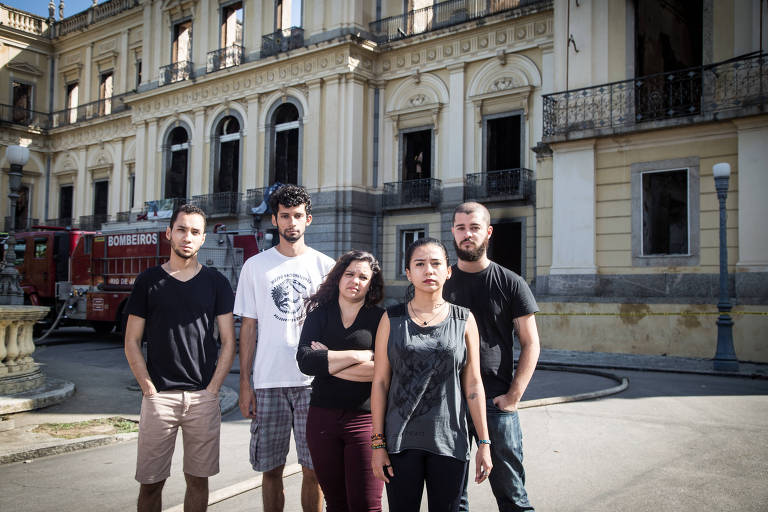The National Museum not only served the purpose of storing and exhibiting objects, artifacts and documents relevant to Brazil's history. Lately, the institution had become one of the most important centers of scientific research in the country.
Thus, the fire that started Sunday (2nd) evening, lasting six hours, and consumed a significant part of a collection of 20 million pieces, not only razed decades of work of a great many scholars, but irrevocably damaged hundreds of graduate students' academic research -- an impact that will be felt in both Brazilian and worldwide science in years to come.
The museum houses six graduate courses, at masters and PhD levels, with a total of 500 students. It employs 89 faculty members as well as internationally renowned researchers, such as Eduardo Viveiros de Castro, Alexander Kellner, and Otávio Velho.
"The only collections houses outside the palace were from departments of botany and vertebrate animals. Everything else was inside, where it caught fire," said paleontology professor Luciana de Carvalho.
In her estimations, the fire hit the work of around 70% of faculty and students. A significant part of the space used for school activities, such as laboratories and scholars' offices, were also destroyed
Among the pieces destroyed by flames, there are also items borrowed from other universities, many of them from abroad. "It's awful and regrettable, but there is nothing to be done; we can't make replacements." According to Carvalho, the institution whose pieces were lost will be contacted in the next few weeks.
The impact of such destruction transcends Brazilian science, says the paleontologist.
"People need to understand that this loss is important to Brazilian as well as international science. The collection I curated received scientist from all over the world to compare specimens and thus it helped to describe new species."
Translated by NATASHA MADOV
Read the article in the original language
